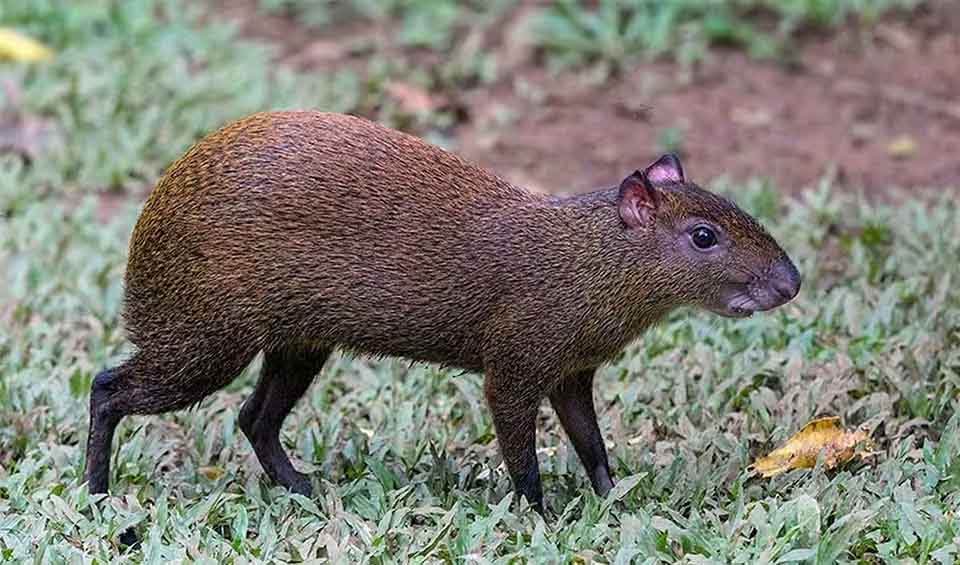Dasyprocta – Agoutis
Here comes the jungle gardeners native to the Central and South Americas!
These medium-sized rodents are distinguished by their sleek, tailless bodies and strikingly red or brown fur, which allows them to blend seamlessly into the forest floor. Unlike many other rodents that adopt a nocturnal lifestyle, agoutis are diurnal, meaning they are active during the day. This unique behavior makes them one of the few forest floor mammals that are regularly visible in daylight, foraging for food and playing a crucial role in their habitats.
One of the most remarkable aspects of agoutis is their significant contribution to seed dispersal in tropical rainforests. Agoutis have a symbiotic relationship with the forests they inhabit; they consume fruits and nuts, and in the process of foraging, they bury seeds in various locations. Not all of these buried seeds are retrieved, leading to the growth of new trees and plants. This behavior is particularly important in regions where large herbivores, which might otherwise fulfill this role, are scarce or absent. By acting as natural seed planters, agoutis help to ensure the regeneration of the forest and the preservation of its complex biodiversity.
Agoutis primarily feed on fruits, nuts, and seeds, with a particular fondness for the large, tough seeds of certain trees, which other animals cannot easily crack open. Their sharp, chisel-like teeth allow them to break open hard-shelled fruits and nuts, accessing the nutritious content inside. This ability not only aids in their survival but also in the dispersal and germination of seeds, as mentioned earlier. The agouti’s diet and foraging behavior demonstrate the interconnectedness of species within tropical ecosystems and highlight the importance of each organism in maintaining the health and diversity of these environments.
Moreover, agoutis have adapted well to their environment with their long, slender legs, which enable them to run swiftly and evade predators. Their agility and speed are crucial for survival in the dense rainforests and open areas they often inhabit. Despite their importance to the ecosystem, agoutis face threats from habitat destruction and hunting. In some regions, they are hunted for their meat, and in others, their habitats are being lost to deforestation, agriculture, and urban development.
Species in this genus
Central American agouti
This widespread cute-looking creature is also known as the ‘gardener of the forest’


